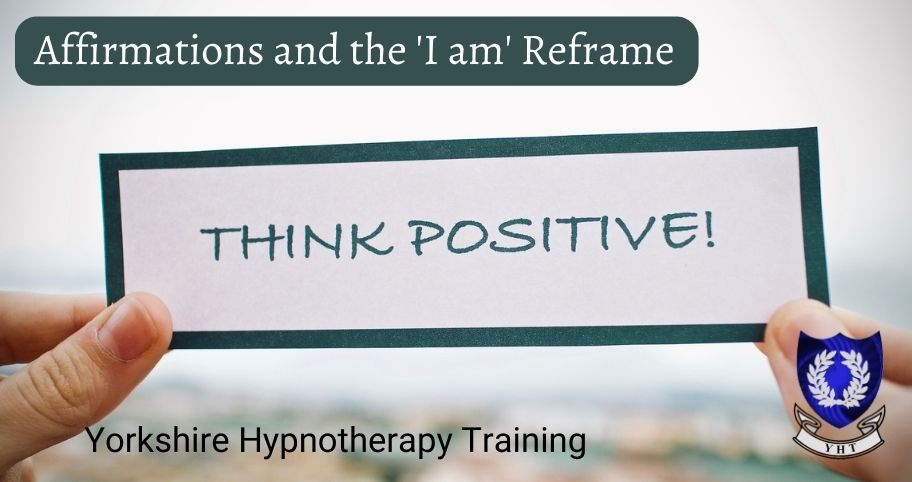Until recently, many have argued that there is no specific psychological mechanism by which affirmations might work, other than, perhaps, placebo effect. The placebo effect is, of course, measurably real. And anecdotal evidence and a plethora of self-help books demonstrate that many people find affirmations helpful. However, we now know that neuroplasticity may be playing a part.
Affirmations and neuroplasticity
We know that repeated thoughts or behaviour can change both the chemistry and physical structure of our brains. So repeating affirmations may be taking advantage of this to 'reshape' us into more positive ways of being.
If we accept affirmations as a kind of waking self-hypnosis, we can understand why this might be. We could even argue that repeating unhelpful or alarming thoughts is a kind of negative affirmation. And that replacing them with positive ones is, therefore, the ideal approach.
There is some proof that affirmations are useful in many therapeutic areas:
- Self-affirmations decrease health-deteriorating stress (Sherman et al., 2009, Critcher & Dunning, 2015),
- Self-affirmations are effective in interventions that led people to increase their physical behaviour (Cooke et al., 2014),
- They may help us to perceive otherwise “threatening” messages with less resistance, including interventions (Logel & Cohen, 2012),
- Affirmations can make us less likely to dismiss harmful health messages, responding instead with the intention to change for the better (Harris et al., 2007) and to eat more fruit and vegetables (Epton & Harris, 2008),
- They are linked positively to academic achievement by mitigating Grade Point Average decline in students who feel left out at college (Layous et al., 2017),
- Self-affirmation reduces stress and rumination (Koole et al., 1999; Wiesenfeld et al., 2001).
Affirmations, of course, work when combined with action. Simply asking a client to repeat ‘I am a slim and healthy person’ won’t make them slim and healthy unless they also eat and exercise in healthy ways. But in many cases, it can help them develop the right mindset and take the appropriate actions.
However, there are exceptions. Recent studies have shown that, for those with low self-esteem, affirmations can make them feel worse. It can actually increase the number of negative thoughts they experience. So as therapists, we need to look for alternatives.
What to do when affirmations don’t work
We know that people with negative self-views are reluctant to take in positive evaluations, whether that comes from themselves or others. The reason is the ‘self-verification theory’, which is linked to ‘confirmation bias’. We like others to confirm our long-term or deeply held beliefs, even negative ones. For example, those with low self-esteem prefer feedback at work that includes negative traits as well as positive ones. Those with healthy self-esteem prefer positive feedback.
Positive feedback results in internal conflict and anxiety for those with low self-esteem, because it contradicts their pre-existing beliefs. They may want to be lovable, for example. But if their self-image says they are not, they will dismiss any information that disagrees with it. In other words, it’s simply too far from their perception of the truth for them to accept it. And they are less likely to accept positive feedback from themselves (i.e., affirmations) than from others (Josephs, Bosson & Jacobs, 2003).
Luckily, there is another approach we can use to help those with low self-esteem: ‘Directed Abstraction’ or the ‘I am’ technique (Zunick et al, 2015).
The 'I am' reframe
This approach involves applying positive past experiences to current ones.
Zunick did his experiment with those whose perception of themselves was as a poor public speaker. A traditional approach might be an affirmation like ‘I feel calm and confident when I give a presentation’. As we’ve seen, someone who has low self-esteem, as well as presentation nerves, is likely to reject this.
Instead, Zunick asked participants to identify a past success and asked why it had been successful. This enabled him to find a positive personal attribute which was then put into the format ‘The speech went well because I am [attribute]’.
Whilst traditional affirmations describe a goal, 'I am' statements reframe positive personal characteristics as the reason for things that have already gone right in the client’s life. The statement is more easily accepted because it includes evidence that it is true.
An example would be someone I recently worked with who wanted to quit smoking. She was a very successful lady, driven and energetic in the pursuit of her career goals. So her "I am" statement was: "Quitting smoking for me is easy because I am determined to reach my goals". This was already true of her career and she simply needed to apply the same drive and energy to reach the goal of being a non-smoker.
The only proviso is that the ‘I am’ statement must be something the client is or feels rather than something they do, i.e., a quality and not an action. Zunick found that, if repeated consistently, his subjects found a difference in their attitudes very quickly and this can provide an alternative to affirmations for clients who have found them ineffective in the past or who have doubts about using them.
https://pubmed.ncbi.nlm.nih.gov/25984786
https://www.asc.ohio-state.edu/psychology/fazio/documents/ZunickFazio_SelfIdentity_2019.pdf
----------------------------

Author: Debbie Waller is an experienced hypnotherapist and hypnotherapy trainer. She is the author of The Hypnotherapist's Companion, Their Worlds, Your Words, and The Metaphor Toolbox, all available from Amazon or direct from the author, and a co-writer of the Hypnotherapy Handbook.
Find out more about Debbie's services on
Yorkshire Hypnotherapy Training - multi-accredited hypnotherapy practitioner training, taster days and foundation levels.
CPD Expert - accredited CPD and other therapy training (online and workshops options), expert and qualified hypnotherapy supervision


Comments
Post a Comment